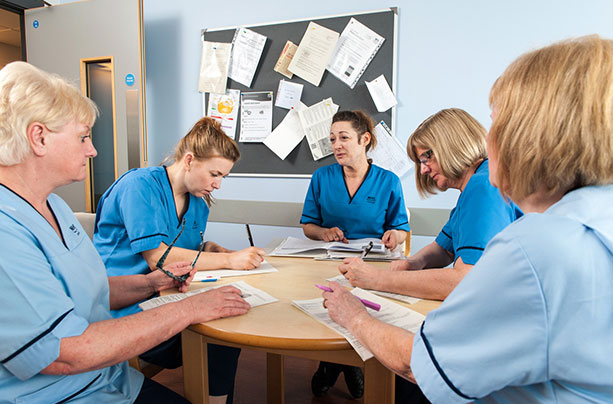Dealing with death at work
Whether you are experiencing death for the first time as a student, or have experienced it many times over your career, it is never easy to process. During the COVID-19 outbreak, healthcare professionals may be exposed to multiple deaths, and the psychological impact of this must not be underestimated.
Here is some helpful advice on coping with the death of a patient.
The Royal College of Nursing have provided also a blog article written by Sarah Murphy, RCN Counsellor, offering her advice on coping with the death of a patient.
Highland Hospice Bereavement Service
The Bereavement Support Service is available throughout the Highlands for anyone who has been bereaved by the death of a relative or friend cared for by Highland Hospice, as an in-patient, or as someone who used any of the Hospice services. It is equally available to the family or friends of former patients of specialist nurses involved in palliative care across the Highlands. It is available irrespective of when the person may have died.
If you are unsure whether this applies to you, please make contact and we can clarify things. Support includes one to one counselling, remembrance events and various groups that run through the year. Enquiries can be made to the Clinical Secretary on 01463 227 919 or 01463 227 901 or by email at clinsec@highlandhospice.org.uk.
Crocus Group
Crocus Group is a bereavement support service for children and young people living in the Highlands. Our services are available free of charge to young people living with grief, regardless of their location or the cause of their bereavement. Further information can be found on the Highland Hospice website.
Guardian Service
NHS Highland’s independent ‘Speak Up’, Guardian Service is now live, offering a 24/7 service which provides colleagues with an opportunity to independently discuss their concerns relating to patient care and safety, whistleblowing, bullying and harassment and work grievances.
The Guardian Service Limited has appointed Derek McIlroy and Julie McAndrew to be the two full time independent dedicated Guardians for NHS Highland.
Fiona Hogg, NHS Highland’s Director of Human Resources and Organisational Development, said: “If you have tried to speak up or don’t feel you can raise your concerns through our internal routes the ‘Speak Up’ Guardian Service will provide an additional channel for colleagues to discuss concerns in confidence.”
“We’re delighted to see the launch of this service. It highlights the NHS Highland Board’s ongoing commitment to deliver the recommendations of last year’s Sturrock report, which recommended that colleagues had access to an independent and confidential route to raise concerns, in addition to the existing internal processes. If you have tried to voice concerns, but don’t feel you can talk to a manager or other colleague, the Guardian Service can help you find a resolution.”
Fiona added: “This is another key milestone for NHS Highland, to ensure that the systems and processes are in place to make sure people can be heard. We recognise that there is a lot more work to be done on our culture programme and the Board is committed to the long term transformation plans that are in place.”
The ‘Speak Up’, Guardian Service can be accessed 24/7 via 0333 577 5955 or contact@theguardianservice.co.uk.
Manager’s Toolkit
What do you do when a staff member calls in sick? How do you handle long-term or recurring absences? How can managers reduce stress, support staff to return to work and prevent sickness absence from becoming an issue in the first place? Our online support tool answers all these questions and more.
The online resource aims to support NHS managers and give them confidence to support their staff and manage sickness absence well. It includes:
- a step-by-step guide for what to do when a staff member calls in sick.
- practical advice on some of the common reasons for sickness absence.
- information on what to do if staff are frequently off sick.
For further information, please visit the NHS Employers website.
National resources
There are some great tools and information available via NHS Education for Scotland (NES). This includes some great visuals to help us understand our reactions, deal with our emotions and maintain coping strategies and resilience during this time. These can be downloaded and printed.
Further resources are available on:
• Specific information for ICU colleagues.
• Staying safe and well guide to Caring for Covid 19 patients.
• Information on how to cope with worry and isolation.
• The Robertson Cooper site has a range of information and tools to help support colleagues and managers over this time.
NES has also teamed up with Know You More to offer free coaching designed specifically to support all health and social services staff in Scotland during the Covid-19 pandemic. More information can be found on the Know You More website.
The National Wellbeing Hub continues to host a series of seminars which focus on wellbeing.
Resources to help us continue to support our patients
- Psychological First Aid Module available via Turas Learn
- Amy Cunningham, who developed the Compassion Fatigue Training Program in the US, presents a TEDx Talk about looking after ourselves.
There is also a dedicated compassion fatigue site including links to a TEDx talk and some resources and links. Aimed at Health and Social Care workers, this is a humane, supportive and flexible response to people who are in distress or suffering during and after this crisis.
Winter Wellbeing Programme
NHS Highland is delighted to present the new Winter Wellbeing Programme for NHS Highland colleagues.
This is a programme of online events taking place over the winter months, to help support you during what is often a difficult and challenging time of the year.
NB: Please note that this page is only available to NHS Highland staff who have access an ‘nhs.scot’ login.

